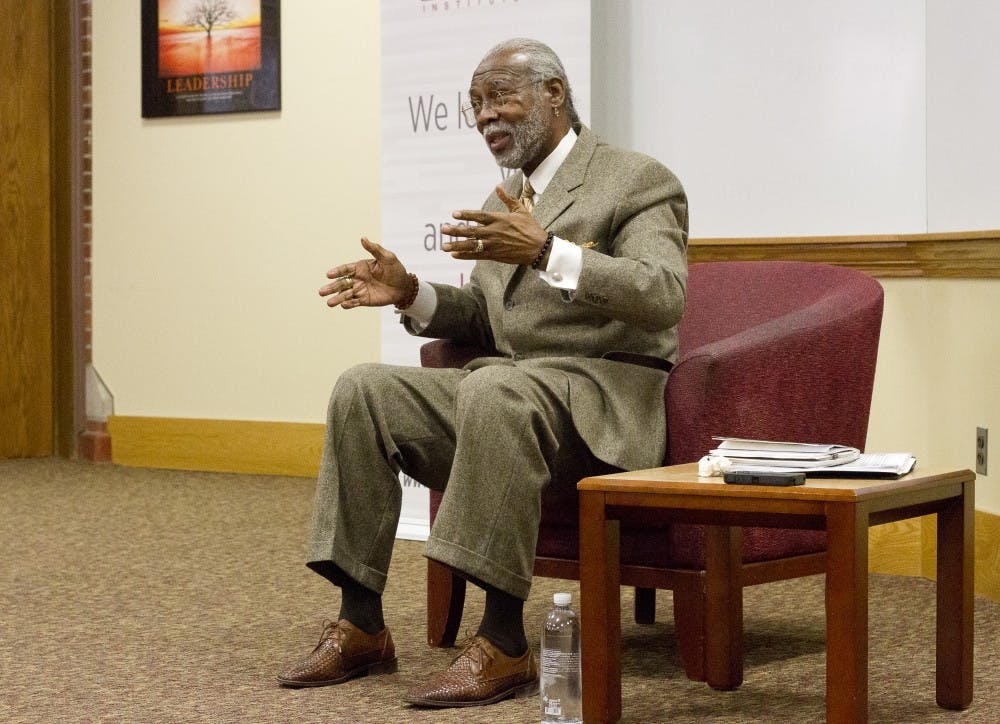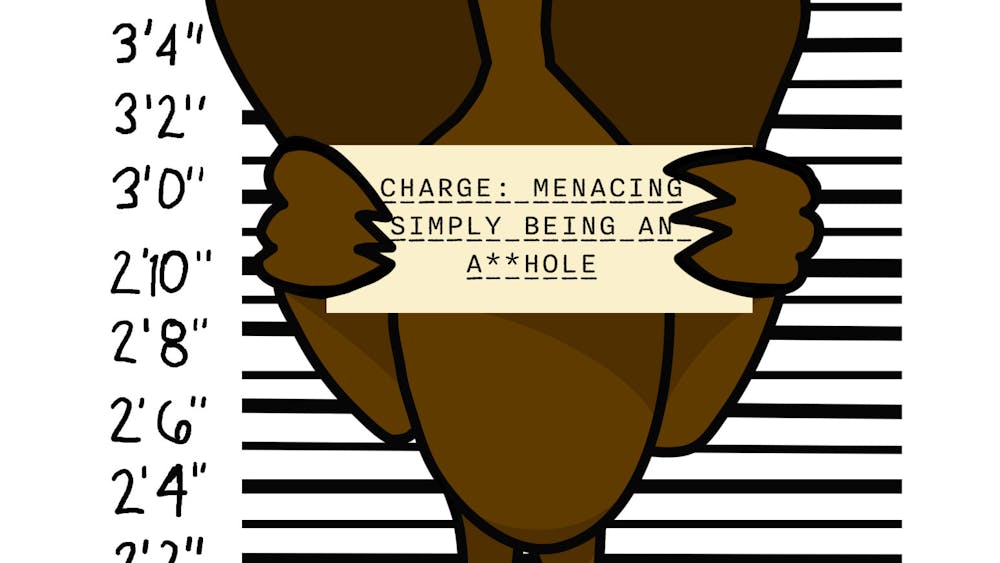Consider This: Walter Beach Returns to CMU

Instead of standing, Walter Beach insisted on sitting down to address students and faculty as equals.
"I don't like the format of talking down to people," Beach said. "I'm a man of no special rank, that's how I view myself, and I appreciate this chance to share my experiences with you."
The 1959 graduate returned to his alma mater Thursday to speak with students about his experiences being a black athlete during the Civil Rights era. Beach played for Central Michigan University football under Kenneth "Wild Bill" Kelly — the same Kelly who is half the namesake of Kelly/Shorts stadium — who faced discrimination for his inclusion of black players. Once while on the road, Kelly and the team slept on the bus because Beach was not allowed into the hotel where they planned to stay.
"Central Michigan was the first place I felt like I was just a human being, not a black man," Beach said. "It was a freeing environment for me."
At CMU, Beach set records during his four-year career, including single season and career rushing, receptions and receiving yardage. He was inducted into the Hall of Fame in 1985.
Beach went on to play in the NFL for the Cleveland Browns for six years. He discussed the discrimination he encountered throughout his career and his activism in the 1960's, which at one point jeopardized his employment with the Browns. Beach may have irked his superiors, but he never went against his principles.
"It is an unquestionable crime for a man to betray himself," Beach said.
The then-owner of the Browns, Art Model, once confronted Beach while the team was on the road in 1963. Beach was reading a book on the subject of ethnicity during his down time, and Model told him to stop. Beach refused, pointing out that even though Model was the owner, he had no authority to control what he read.
Beach has spent his life, which has included serving in the United States Air Force, studying law at Yale and being the CEO of Amer-I-Can in New York, endeavoring to live a life free of hypocrisy.
"When someone else violates a principle, they're wrong," Beach said. "But when you do it, you rationalize it."
The forum allowed students and faculty to get involved in the discussion.
"When you think about civil rights, you just think of rights for minority groups," said Grand Rapids senior Adam Weidenfeller, President of the Museum Studies Club. "But Walter did it for the sovereignty of every individual, and fought for no one person to unfairly treat another. He's very representative of his philosophy."
"He's a fascinating guy and he's done everything," said Auburn student Brad Collins. "It was inspiring to talk with him, and it makes you think about life and not want to be a hypocrite."
Beach signed copies of of his memoir, "Consider this," which is now available in the CMU Bookstore. Beach signed every copy with the words "be the light."
"Consider this" is not an autobiography," Beach said. "The stories I share are what I consider to be profound lessons."
His talk was sponsored by the College of Humanities and Social and Behavioral Sciences, the Museum of Cultural and Natural History, the Leadership Institute, the history department, Development and External Relations and Multicultural Academic Student Services.




